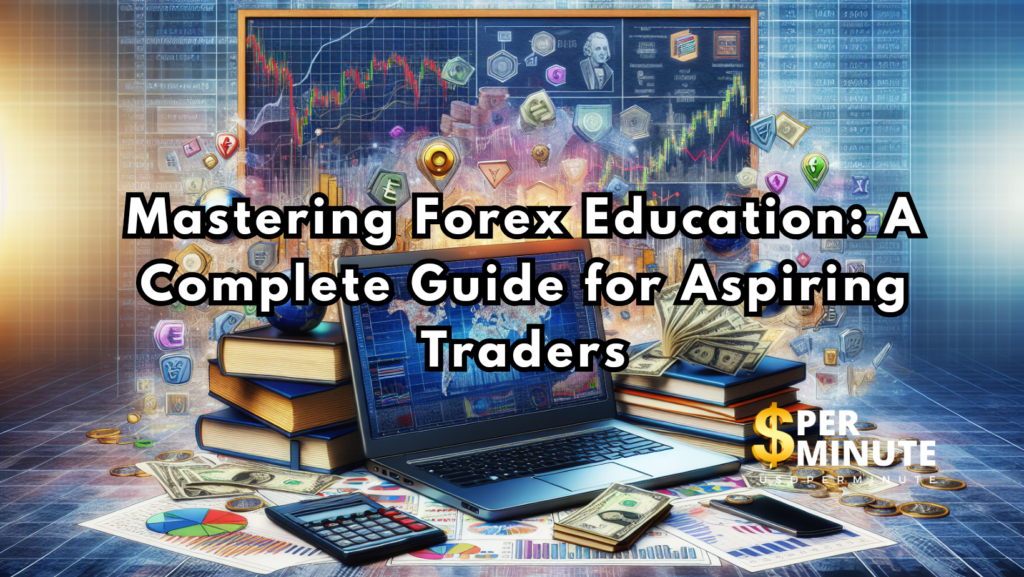Mastering Forex Education: A Complete Guide for Aspiring Traders

Forex trading, the global marketplace for currency exchange, is an exciting and dynamic arena for investors. However, success in this market requires more than just enthusiasm—it demands knowledge and strategic preparation. This article outlines the essentials of forex education, offering insights to help beginners and seasoned traders alike enhance their skills and strategies.
What is Forex Trading?
Forex, short for foreign exchange, involves trading currency pairs like EUR/USD or GBP/JPY. Traders aim to profit from the price fluctuations in these pairs, driven by economic events, geopolitical changes, and market sentiment. Understanding the basics is the first step toward mastering forex trading.
Why Forex Education Matters
Forex trading isn’t just a gamble; it’s a skill-based investment requiring careful analysis and planning. Education provides:
- Market Knowledge: Understand how economic indicators and global events affect currency prices.
- Strategic Planning: Develop and refine trading strategies tailored to your goals.
- Risk Management: Learn to minimize losses while maximizing potential gains.
- Confidence Building: Approach trades with a clear, informed mindset.
Key Components of Forex Education
1. Understanding Forex Basics
- Currency Pairs: Learn the difference between major, minor, and exotic pairs.
- Market Hours: Understand when different markets (London, New York, Tokyo) are active.
- Leverage and Margin: Grasp the power and risks of leveraged trading.
2. Technical Analysis
- Charts and Patterns: Study candlestick charts, trends, and reversal patterns.
- Indicators: Familiarize yourself with tools like RSI, MACD, and Fibonacci retracements.
- Price Action: Analyze historical price movements to predict future trends.
3. Fundamental Analysis
- Economic Indicators: Monitor data like GDP growth, unemployment rates, and interest rates.
- Central Bank Policies: Understand how rate hikes or cuts impact currency values.
- Geopolitical Events: Stay updated on global news and its market implications.
4. Risk Management
- Position Sizing: Determine the appropriate size for each trade.
- Stop-Loss Orders: Set limits to control potential losses.
- Diversification: Avoid putting all your capital into one trade or asset class.
5. Trading Psychology
- Emotional Control: Stay disciplined, avoiding impulsive decisions driven by fear or greed.
- Patience and Persistence: Understand that consistent success takes time and effort.
- Adapting to Market Changes: Be flexible and adjust strategies as markets evolve.
Top Resources for Forex Education
1. Online Platforms
- Websites like Babypips and Investopedia offer beginner-friendly tutorials.
- Brokers often provide free educational tools, including videos and eBooks.
2. Books and Guides
- Recommended reads include “Currency Trading for Dummies” and “The Forex Trading Manual”.
3. Trading Courses
- Enroll in courses from reputable providers like Udemy or Coursera.
4. Demo Accounts
- Practice trading without real money using demo accounts offered by most brokers.
5. Community Engagement
- Join forums and social media groups to learn from experienced traders.
- Participate in webinars and live trading sessions.
Building Your Forex Trading Strategy
Developing a personalized trading strategy is crucial. Consider:
- Timeframes: Decide whether you’ll trade daily, weekly, or intraday.
- Methods: Use a combination of technical and fundamental analysis.
- Goals: Set realistic short-term and long-term objectives.
SEO Tips for Forex Bloggers and Educators
If you’re sharing forex education online, follow these SEO practices:
- Keyword Optimization: Use keywords like “forex education,” “how to trade forex,” and “forex strategies.”
- Quality Content: Provide valuable insights to engage readers and build authority.
- Backlinks: Collaborate with reputable sites to improve credibility.
- Regular Updates: Keep your content fresh with the latest market trends and tools.
Conclusion
Forex education is the foundation of successful trading. By mastering the basics, leveraging reliable resources, and continually refining your strategies, you can confidently navigate the forex market. Remember, consistent learning and disciplined trading are the keys to achieving your goals in this ever-evolving financial landscape.